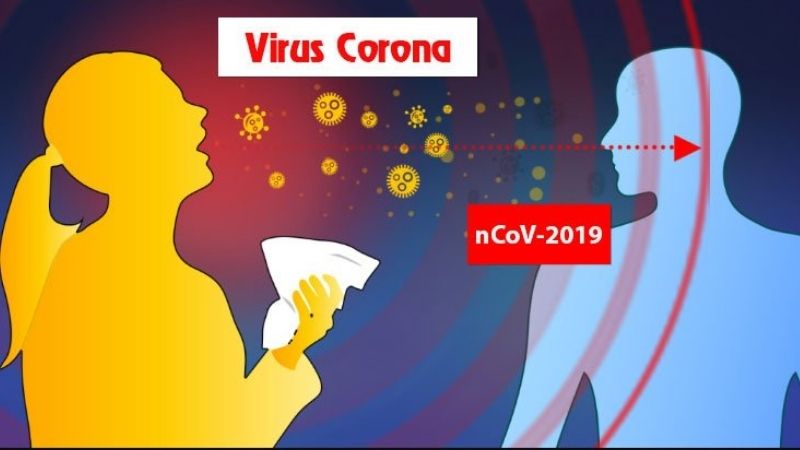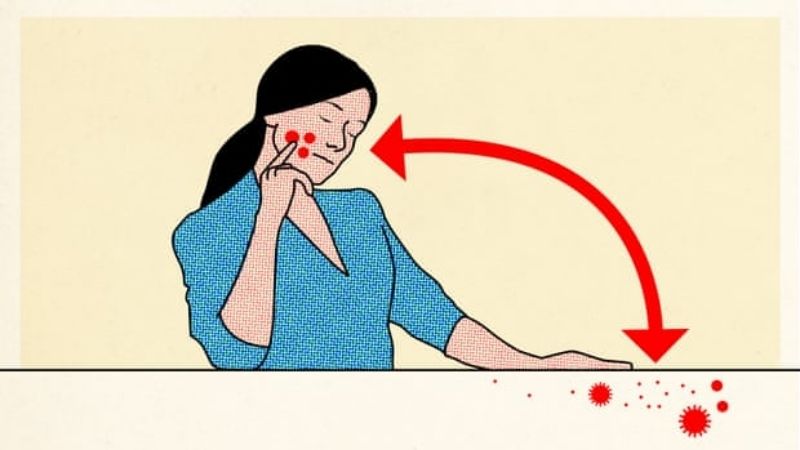The Coronavirus has caused a global pandemic and is an extremely dangerous virus. So, how does it spread? Let’s find out together in this article!
1 Airborne Transmission
When an infected person coughs or sneezes, the virus is released into the air and can enter the body of another person nearby. Therefore, maintain a minimum distance of 2 meters when in contact with anyone.
 Coronavirus can be airborne
Coronavirus can be airborne
2 Direct Transmission
A healthy person shakes hands with an infected person and then does not wash their hands thoroughly with disinfectant soap. If they then touch their face, nose, or mouth, the virus can enter their body.
 Coronavirus can be transmitted through direct contact
Coronavirus can be transmitted through direct contact
3 Indirect Transmission via Contaminated Surfaces
When an infected person coughs or sneezes, the droplets containing the virus are expelled and can land on surfaces such as tables, cabinets, doors, handrails, and other places. If an uninfected person touches these surfaces and then touches their eyes, nose, or mouth, they can become infected with Coronavirus.
 Coronavirus can be transmitted indirectly via contaminated surfaces
Coronavirus can be transmitted indirectly via contaminated surfaces
4 Fecal-Oral Transmission
In addition to respiratory transmission, can this virus also be transmitted through blood, feces, or contaminated materials?
Doctors in Shenzhen have answered this question. They found Coronavirus RNA in the feces of infected patients, confirming that this new virus can be transmitted through human feces.
If an infected person does not wash their hands after using the toilet and then directly touches another person’s food, they can transmit the virus.
Preventing Coronavirus transmission through the fecal-oral route is very important. Therefore, it is essential to wash your hands before eating, after using the toilet, and to avoid touching or serving food with your hands. Additionally, use disinfectant soap and wash your hands for at least 20 seconds.
 Coronavirus can be transmitted through feces
Coronavirus can be transmitted through feces
Ministry of Health Recommendations
To proactively prevent COVID-19 pneumonia, the Ministry of Health recommends that the public be aware of the routes of Coronavirus transmission and implement the following measures:
-
Follow the 5K message from the Ministry of Health: Mask – Disinfection – Distance – No gathering – Health declaration.
-
Avoid direct contact with people with acute respiratory infections. If contact is necessary, wear a medical mask correctly and maintain a safe distance.
-
Keep your body warm, practice personal hygiene, wash your hands frequently with soap, and gargle with mouthwash to prevent pneumonia.
-
Cover your mouth and nose when coughing or sneezing, preferably with a cloth or handkerchief, to reduce the spread of respiratory droplets.
-
Avoid close contact with animal farms or wild animals.
As this COVID-19 virus continues to spread, everyone must practice frequent handwashing and always wear a mask when going out. Additionally, personal hygiene and vitamin supplementation to boost immunity are equally important during this outbreak.


































